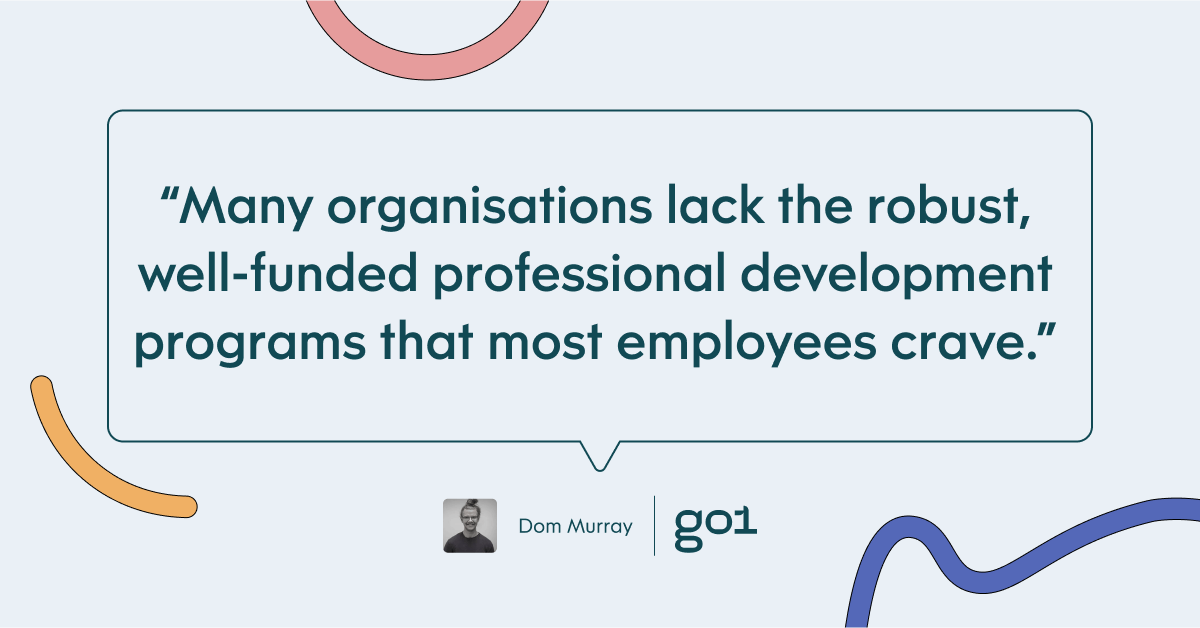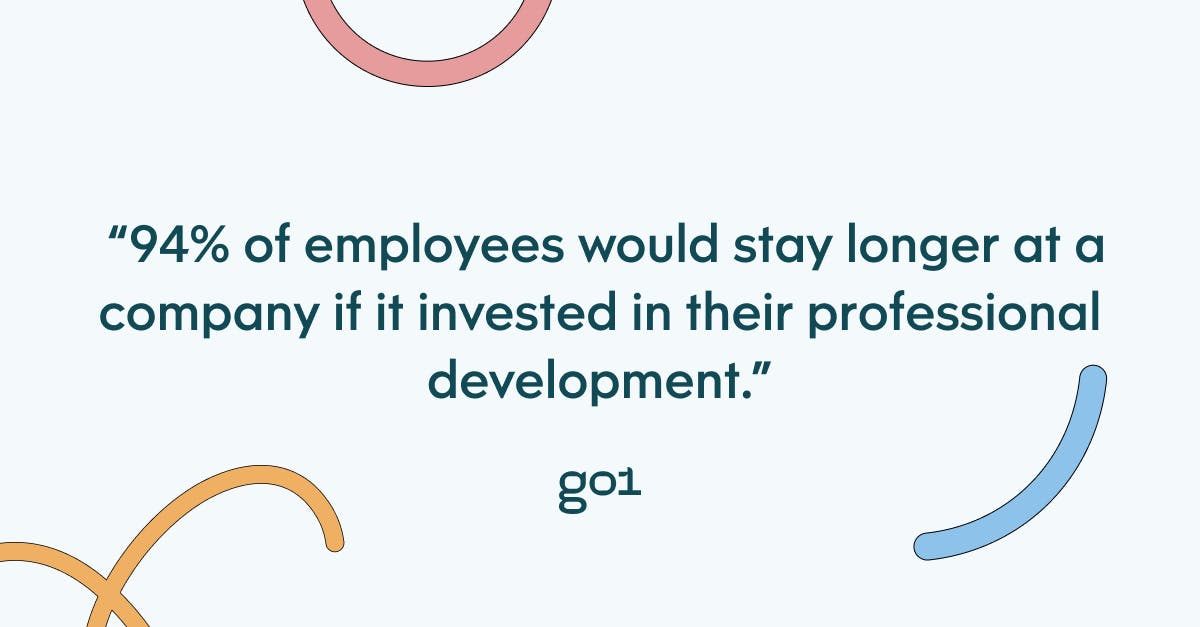
Tips to self-advocate for your professional development

Self-advocacy can be one of the most difficult skills to master in a professional environment. Most people can probably relate to feeling dissatisfied, stuck, or even stagnant in a job at some point. In fact, in a recent survey, a whopping 74% of employees said they aren’t reaching their full potential at work due to a lack of development opportunities.
There can be several reasons for this feeling. Perhaps your company’s L&D program is lagging behind (or, in some cases, nonexistent). Maybe you aren’t being given enough time to learn at work. Or maybe, professional development just isn’t prioritised in your workplace. However, while these feelings are one thing, challenging the status quo to advocate for your professional development is another thing entirely.
With this in mind, we have decided to offer some tips to self-advocate for your professional development. We’ll start by looking into what self-advocacy is and why it’s so difficult before answering the question: how can I advocate for my professional development at work?
If you need a quick refresher on the benefits of professional development, be sure to read the first article in this series, how to motivate your team to invest in their professional development.
What is self-advocacy, and why is it so difficult?
In many ways, the concept of self-advocacy is self-explanatory. In a professional context, it means speaking up when things are important to you, asking for things you want or need to progress in your career, and setting healthy boundaries and expectations. You know, advocating for yourself. Speaking up to advocate for professional development opportunities is a key aspect of self-advocacy in the workplace, allowing you to learn new skills and progress in your career.
According to MyWay Employability, “self-advocacy means standing up for yourself and letting people know about your rights and needs. Advocating for yourself in the workplace helps to ensure that you can do your job safely and to the best of your ability. Advocating for yourself also means you are more likely to be treated fairly by others and have an equal opportunity to succeed.”
Forbes expands on this definition, explaining that “self advocacy is a critical part of healthy relationships, long term success, and overall happiness in life. One of the many benefits of self-advocacy that helps establish these three pillars of overall wellness, is that when you feel comfortable advocating for yourself, you can get what you want and deserve out of your negotiations.”
However, these relatively simple definitions belie the difficulty of advocating for yourself at work.
To exemplify this point, only 29% of employees are "very satisfied" with their current career advancement opportunities. Similarly, 76% of employees are actively looking for career growth opportunities, while Gallup finds that a mere 13% of employees worldwide are fully engaged.
These statistics reveal two vital points. Firstly, many organisations lack the robust, well-funded professional development programs that most employees crave. Secondly, many employees are in a position where they are unable to advocate for their professional development. There are many reasons for this. For example, organisations may foster a culture where speaking up is discouraged, or employees that do speak up may not be listened to.

Emerald Works backs this up, finding that many organisations are resistant to change. According to their 2020 Back to the Future report, 36% of leaders have traditional expectations of L&D that are difficult to challenge, while 28% of organisations experience reluctance by senior management to encourage new ways of learning and working.
Whatever the reason, many people find it difficult to advocate for their professional development at work, thereby stifling their career growth opportunities.
How to self-advocate for your professional development
With these challenges in mind, it is worth asking: how can I advocate for my professional development at work?
The first and most important tip is to come prepared. While it is great to advocate for your needs, without a solid justification and measurable statistics, these requests are likely to fall on deaf ears. Our article on the cost of not investing in digital learning is a great place to start, as it shows organisations and managers how much they miss out on by not investing in employees’ professional development. For example, one-third of all turnover is due to either unsupportive management or a lack of development opportunities. And these turnover costs add up quickly.
While building your case, another helpful tip is to align your goals with the overall goals of your business. As Masterclass puts it, “make sure what you want also benefits your company. The next time you ask for something you want at work, frame it as a win-win for both you and your company.” By putting your requests in terms that executives can relate to, your needs are more likely to be taken seriously.
For instance, if you want your organisation to upgrade their professional development program, you could point out that 94% of employees would stay longer at a company if it invested in their professional development. Likewise, Emerald Works finds that nearly one-third of companies are concerned about the cost of set-up, maintenance, and development for L&D tools. To ease these fears, you could point out that companies that invest in L&D have a 24% higher profit margin than those that spend less on training.

If these requests still go unmet, it might be time to take matters into your own hands and look elsewhere for professional development opportunities. This doesn’t necessarily mean changing jobs, but thinking outside the box. As Seek explains, there are still many ways to get ahead if your company’s professional development plan is lagging behind. One way to do this is by growing your connections on social media. By building your network, you will be exposed to more perspectives, have more chances to interact with experts, and advance your development by learning from other peoples’ skills.
You may also want to reach out to a mentorship program to help grow your knowledge and skills. Or, you could lean on resources such as books and podcasts from industry leaders to help advance your career. If you’re looking for a great podcast to aid your professional development, we’d recommend listening to Learning with Go1.
Finally, it may also be worth talking to other people in your team to see if they feel the same way. If they do, you could encourage knowledge sharing by organising learning workshops within your team. One good way to do this is by organising ‘Lunch and Learns’, where you can take turns teaching each other new skills. Likely, you will all have different skills, perspectives, and experiences to impart. By doing so, you can help to foster a sustainable learning culture within your organisation.
For more insights, be sure to subscribe to the Go1 newsletter to stay on top of all the latest L&D trends. Or, you can book a demo today to find out how Go1 can help with your team’s learning needs.




